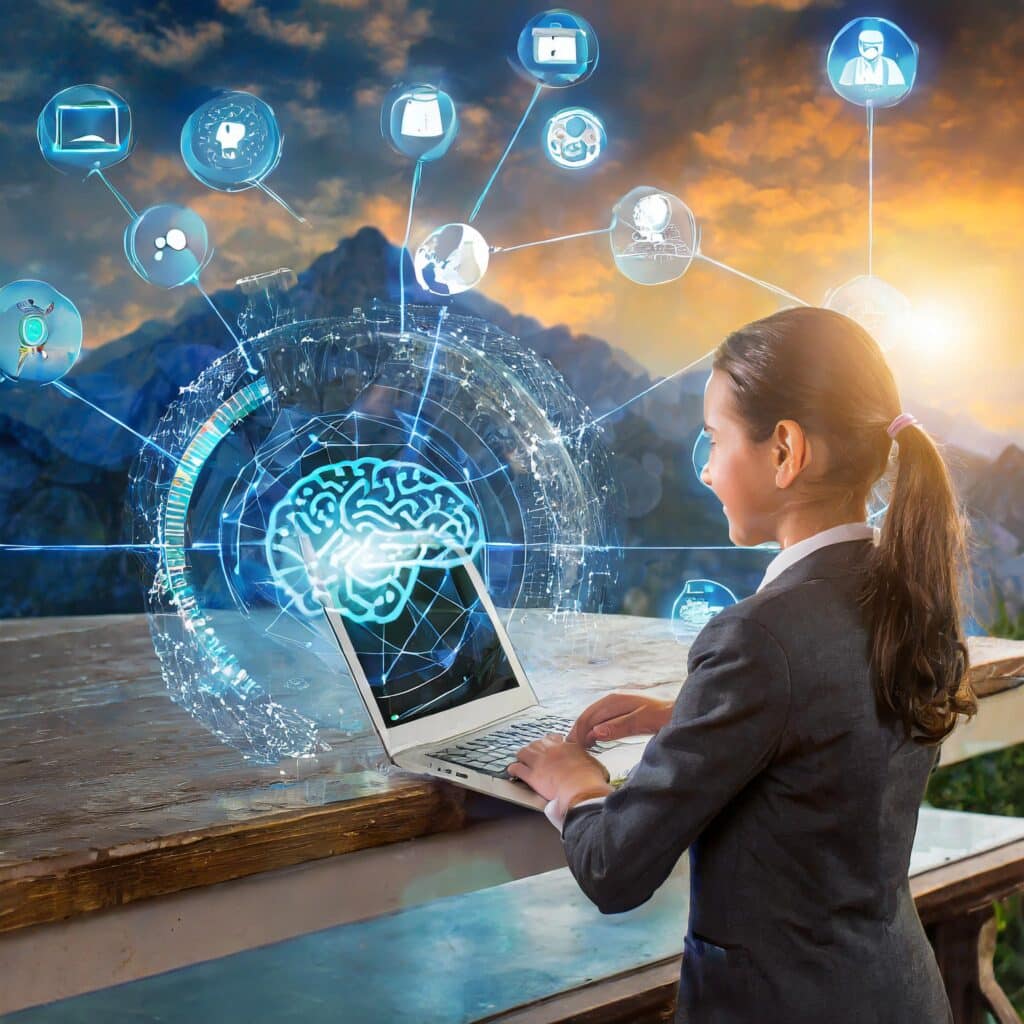The landscape of education is undergoing a digital revolution, and e-learning is at the forefront of this transformative shift. In this blog post, we’ll explore the future of e-learning, navigating the trends and innovations that are reshaping the way individuals acquire knowledge and skills in the digital age.
1. The Evolution of E-Learning: From Online Courses to Holistic Digital Experiences:
Explore the evolution of e-learning from its early days of online courses to the current era of holistic digital experiences. Understand how technology has transformed the way education is delivered and consumed.
2. Personalized Learning Paths: Tailoring Education to Individual Needs:
Delve into the concept of personalized learning paths, where technology and data analytics enable the customization of educational experiences to meet the specific needs, preferences, and learning styles of individual learners.
3. Augmented Reality (AR) and Virtual Reality (VR) in Education: Immersive Learning Experiences:
Explore the integration of Augmented Reality (AR) and Virtual Reality (VR) in education. Understand how these immersive technologies are creating engaging and interactive learning experiences, from virtual field trips to simulated laboratory experiments.
4. Gamification and Learning: Turning Education into Play:
Gamification is transforming the educational landscape. Explore how elements of game design, such as points, rewards, and challenges, are being incorporated into e-learning platforms to make education more engaging and enjoyable.
5. Microlearning: Bite-Sized Knowledge for On-the-Go Learning:
In a fast-paced world, microlearning is gaining popularity. Explore how short, focused bursts of content—delivered in bite-sized modules—are providing learners with on-the-go access to knowledge and skills.
6. Artificial Intelligence (AI) in Education: Intelligent Tutoring and Adaptive Learning:
AI is revolutionizing education through intelligent tutoring systems and adaptive learning platforms. Explore how AI analyzes learner data to provide personalized feedback, adapt content delivery, and enhance the overall learning experience.
7. Collaborative Learning Platforms: Fostering Interaction in Virtual Classrooms:
Collaboration is key to effective learning. Explore how collaborative learning platforms are recreating the dynamics of a physical classroom in a virtual setting, facilitating discussions, group projects, and peer-to-peer interactions.
8. Accessibility and Inclusivity: Bridging Gaps in Digital Education:
The future of e-learning emphasizes accessibility and inclusivity. Explore how innovative technologies and design principles are being employed to ensure that digital education is available and effective for learners of all backgrounds and abilities.
Conclusion: Empowering the Learners of Tomorrow
The future of e-learning is dynamic and full of possibilities. By understanding the evolution of e-learning, embracing personalized learning paths, integrating AR and VR, incorporating gamification, adopting microlearning, leveraging AI, fostering collaboration, and prioritizing accessibility, the education landscape can empower the learners of tomorrow. Join us in this exploration of the exciting trends and innovations shaping the future of digital education, where knowledge is not just acquired but experienced in transformative ways.

